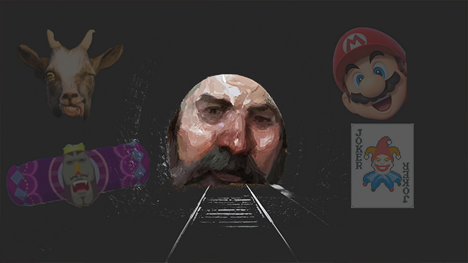Genre Bending: Taking Outbreak from Action Survival Horror to Horror Visual Novel
How and why did we, as a small studio, end up with a visual novel side series? And was it worth it? Now that What Lydia Knows is complete, I wanted to share our process, what our motivations were, and how it’s changed our company’s approach to game development.
June 14, 2024
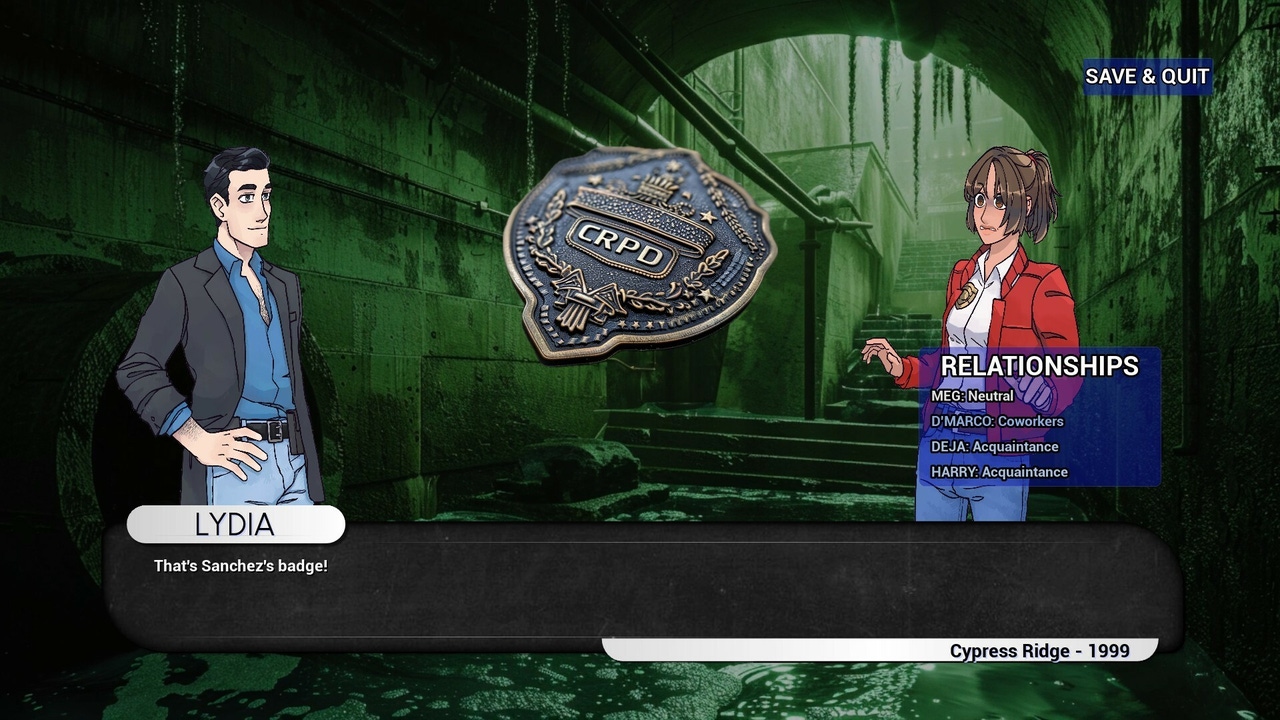
Adapting an existing series to a completely new genre.
This May has been a milestone for our series, Outbreak. It has just celebrated its first visual novel publication: Outbreak The FEDORA Files: What Lydia Knows. As a producer for the Outbreak series for the past seven years, and one of the founding members of Dead Drop Studios, I have come to have an almost formulaic expectation for our games. Our primary focus since our founding has been action games in the survival horror genre, specifically targeting the retro PS1 style of play. It is a very niche style for a very niche audience, inspired by our own nostalgia of early 90’s horror games. For a three person studio, it is the type of gaming that we love and create the best. All small indies know that time and resources are precious. So how and why did we, as a small studio, end up with a visual novel side series? And was it worth it? Now that What Lydia Knows is complete, I wanted to share our process, what our motivations were, and how it’s changed our company’s approach to game development.
Exploring new paths forward
The roots of What Lydia Knows come from another project of ours, Outbreak: Shades of Horror, currently in development. Funded via Kickstarter, Shades of Horror is our first big jump into cutting edge graphics and a whole new world using Unreal Engine 5. It is also the largest scale game we have ever attempted and resource management has been much trickier than we expected. Up until now, we were typically releasing a title every one to two years. The development time for Shades of Horror was projected to be five years.This presented two major challenges for us. First, with how long the final project would take to come to fruition, we would need to release other games to stay in business. We had also made the switch to Unreal Engine 5 over Unity, which meant we needed the opportunity to experiment with that engine as our work evolved. The second challenge was community engagement. We have a wonderful Discord community of dedicated fans of the series, and we need to keep the flame alive and our people engaged and participating in the narrative. It is extremely hard to do this with five years of no content. We had to introduce them and keep them involved in the goings on of the fictional town of Cypress Ridge until release.
What other avenues could we explore?
Our crew started to come up with ideas with what we could do that would not only be informative, but interactive as well. As any Kickstarter guru knows, updates are vital to the success of any long term fulfillment campaign, and as any developer knows, creating things that non-programmers or non-creatives can understand usually isn’t the priority in roughing out technical development.
The universe in our games is very important to our players; it’s something that despite not starting out as a lore heavy series, our fans have always commented on enjoying. With Shades of Horror being a reboot to our in-game universe, I began to think of ways we could expand out the world that wouldn’t traditionally be the focus in a typical survival horror game.
We knew whatever format we chose needed to give our players a close relationship with our characters. It would also have to be simple enough for one person to carry the workload. We considered a lot of different ways to approach this before finally settling on the visual novel format. We liked the idea of writing mini-series in the Outbreak universe that could run parallel to the full game experience and still allow us to be cinematic.The rest of our team was responsible for the technical build of Shades of Horror, so What Lydia Knows was primarily my responsibility both due to the resource shortage as well as the fact the script work and logic for the visual novel experience are closely tied together.
But there was one huge problem – I never made a visual novel before! How would I be able to put this together? Would we be able to put it together in a way that fans who didn’t traditionally enjoy visual novels would want to play?
A breath of fresh air for our players and for our business
We were already in the process of testing a new style of game plan when we put our lore building game plan into motion. Railbreak, Dead Drop Studios’ on-rails shooter/ lightgun style game, was well received by our fanbase. We were reasonably sure that the fans would be open to a new style of play, but as shooters by nature tend to be very dynamic and visual novels very static, we definitely were sailing into uncharted waters. When we announced Railbreak and saw the reception both from our core base and on social media, we realized that tackling new genres and ideas not only reached different audiences, it also energized us internally to do something different.
Luckily, it turns out this new approach had plenty of advantages. I was looking to tell a more interactive and character-based horror story, and it was clear this ambition could be better realized as a visual novel. It also helped mix things up. As a small studio, we don’t have the infrastructure to create a reliable sequel over and over, especially as games become more expensive and complicated to make. There’s also the problem that iterative genre titles can excite a core fanbase, but for those who aren’t invested in this type of gameplay, it doesn’t really give newcomers a reason to take a look at our products. Our business model was previously focused around a very specific gameplay style, and now it has evolved to being focused on the story we’re looking to tell and what type of game is most appropriate to tell it. The diversity and experimental nature of projects like What Lydia Knows allows us as a small operation to quickly gather feedback and pivot if something we create either resonates or flops with our players.
Learning something new
In order to pull off What Lydia Knows, I needed to closely study the visual novel genre from a marketing and sales standpoint. I also had to expand my skill base. I am normally the writer and overall narrative designer on our games. This was a unique challenge and an opportunity to get my hands dirty in a different way, as my husband and business partner, Evan, is our studio engineer. He was able to use his knowledge to put together an environment for me to convert my script into an interactive game with tons of branching paths, choices, and endings. But because the coding required a thorough knowledge of the script, I had to do all of the scripting myself. This was equal parts fun and frustrating. I loved learning how to do new things, but learning how to code and write for a new type of game at the same time often threw me for a loop.
The rest of the company tackled the concept of how to provide additional side content and features that would enhance the overall value of the product and content that might retain past fans who were not thrilled at the visual novel style. While I handled the core game, the rest of the team was able to reappropriate the tech work Evan had done and expand on it to create what is now known as Outbreak RPG, a bonus title offered in the What Lydia Knows package. Alongside other bonuses like a concept art gallery, a music player, and a scene builder, What Lydia Knows evolved into a robust product with a lot to offer.
I’m extremely proud of what the team has been able to accomplish with What Lydia Knows.
Although the change in game style was a risk, fans responded very positively at having a different mode of interaction with characters both new and already beloved. The reception from both our players and from our publishing partners has been better than we could’ve expected so far, which is extremely motivating. We consider this experiment a success. Going forward, we will challenge ourselves to create new experiences and products that enable us to both reach greater audiences and satisfy our existing playerbase.
If you find yourself stuck in a creative or financial rut, opening your mind to creating new and different products may just be the way to reignite your passion and your business!
About the Author(s)
You May Also Like


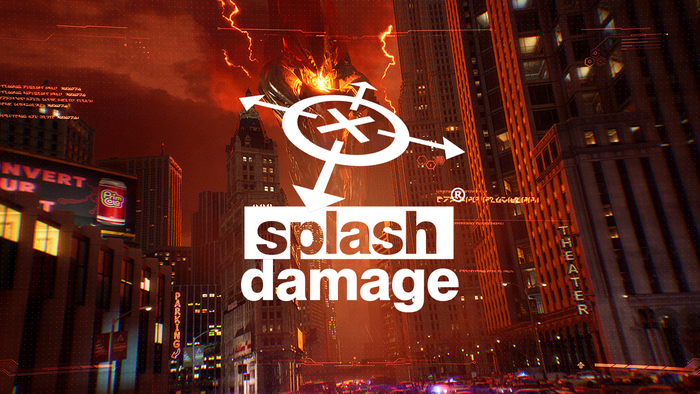

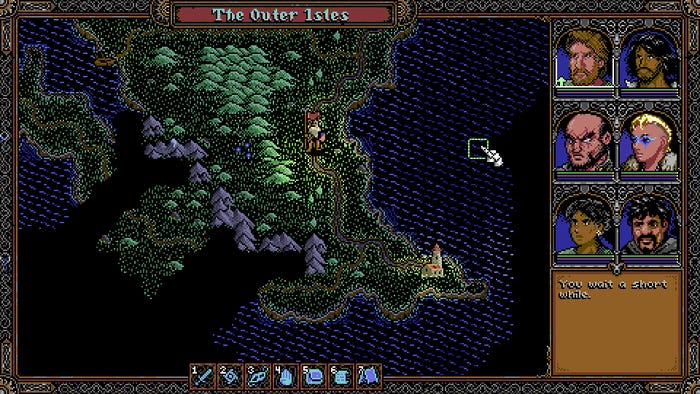
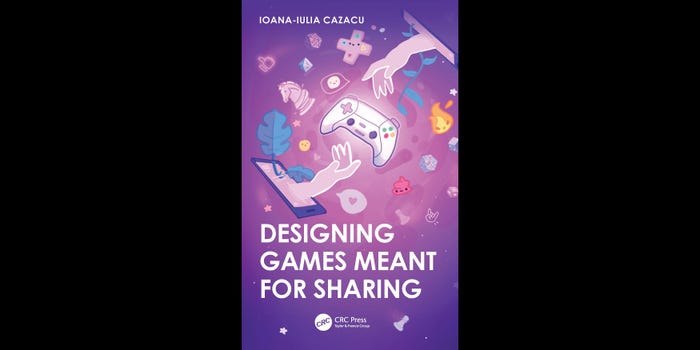

.jpeg?width=700&auto=webp&quality=80&disable=upscale)


.jpg?width=700&auto=webp&quality=80&disable=upscale)
